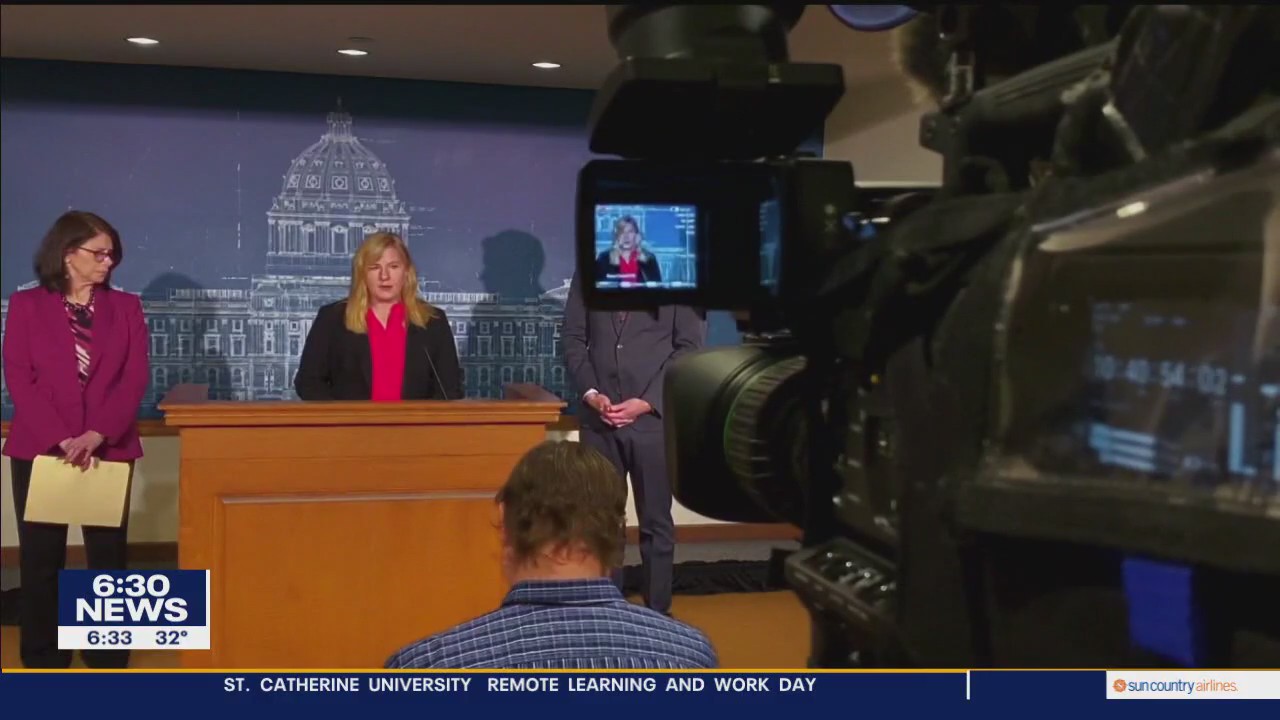Democrats reveal far-reaching agenda in Minnesota Legislature

Democrats reveal far-reaching agenda in Minnesota Legislature
Democrats who've taken control of the Minnesota Legislature released a sweeping agenda Wednesday that ranges from abortion access to a child care tax credit, but they will face tests while trying to get the measures into law.
ST. PAUL, Minn. (FOX 9) - Democrats who've taken control of the Minnesota Legislature released a sweeping agenda Wednesday that ranges from abortion access to a child care tax credit, but they will face tests while trying to get the measures into law.
Democrats designated a bill to guarantee abortion access in state law as House File 1 and Senate File 1, a symbolic gesture that signals each chamber's top priority. A 1995 Minnesota Supreme Court decision holds that abortion is a protected right in the state constitution, but Democrats see legislation as a safeguard in case the court ever reverses that 28-year-old decision.
Behind the abortion legislation are bills ranging from climate change to voting rights. Democrats want to pass some measures by the end of January and strike quickly after years of divided government. But they hold slim majorities, including a single-vote advantage in the Senate.
"We don’t want to wait to pass everything at the end of May," Senate Majority Leader Kari Dziedzic, DFL-Minneapolis, told reporters. "We’re going to be looking at what can move quickly, where we have agreement and move them out."
Democrats have power over a $17.6 billion budget surplus. Republicans who are largely on the sidelines of state government said they opposed many of the DFL's agenda items.
"The DFL priorities we heard today were what we expected: controversial and divisive," House GOP Leader Lisa Demuth and Senate GOP Leader Mark Johnson said in an emailed statement. "Rather than getting to work on balancing the budget and giving the massive surplus back to the people, they are rushing through their own top priorities without bipartisan support."
Democrats are seeking an expanded tax credit for families with child care expenses. Parents would get a $1,500 credit for each child ages 5 and older, up to $3,000. The credit is larger for parents of younger children: they would get $5,000 for each child under age 5, with a maximum of $12,500.
The credits are refundable, meaning parents with no taxable income can still receive them. Eligibility phases out for married couples with incomes more than $125,000, though couples with incomes up to $400,000 stand to receive a partial credit.
Democrats said the child care tax credit would encourage more parents to return to the workforce, addressing Minnesota's tight labor market. They said the same about a second bill creating a government-run paid family and medical leave program.
Workers would get 12 weeks of guaranteed income if they have to miss work for a family or medical emergency. The benefit would be funded by a payroll tax increase, according to the bill introduced Wednesday. Dziedzic said she was unsure how quickly the bill would move forward in the Senate because it requires numerous committee hearings and votes.
Among the issues that didn't make the DFL's priority list was legalization of recreational marijuana. It's unclear whether the Senate DFL has enough votes to pass a marijuana bill. House Democrats plan to unveil legislation on Thursday morning. State Rep. Zack Stephenson, DFL-Coon Rapids, will be the lead author.
"It is a priority," House Speaker Melissa Hortman, DFL-Brooklyn Park, said when asked why marijuana was left off the priority list. She called it a "big, complicated issue."
Democrats also said they would tackle voting rights legislation in 2023. Among their agenda items: restoring voting rights for felons who have been released from prison but remain on supervision, pre-registration for 16- and 17-year-olds so they're immediately eligible when they turn 18 years old, and automatic voter registration for people who have already provided identification to get a driver's license.
On the tax front, Hortman said the child care tax credit was their primary focus. But five Senate Democrats have made a separate proposal to fully exempt Social Security income from state tax a top priority. State Sen. Aric Putnam signed onto a Republican bill Wednesday. Four other DFL senators, Grant Hauschild, Heather Gustafson, Judy Seeberger, and Rob Kupec, all support fully eliminating the tax liability. Gov. Tim Walz has said he opposes full elimination.
Past fiscal estimates have pegged the lost tax revenue at roughly $600 million per year.
"We know that has exploding tails meaning it’s very expensive in the future," Hortman said Wednesday when asked about a full Social Security exemption, while saying the issue remains "in the mix."

